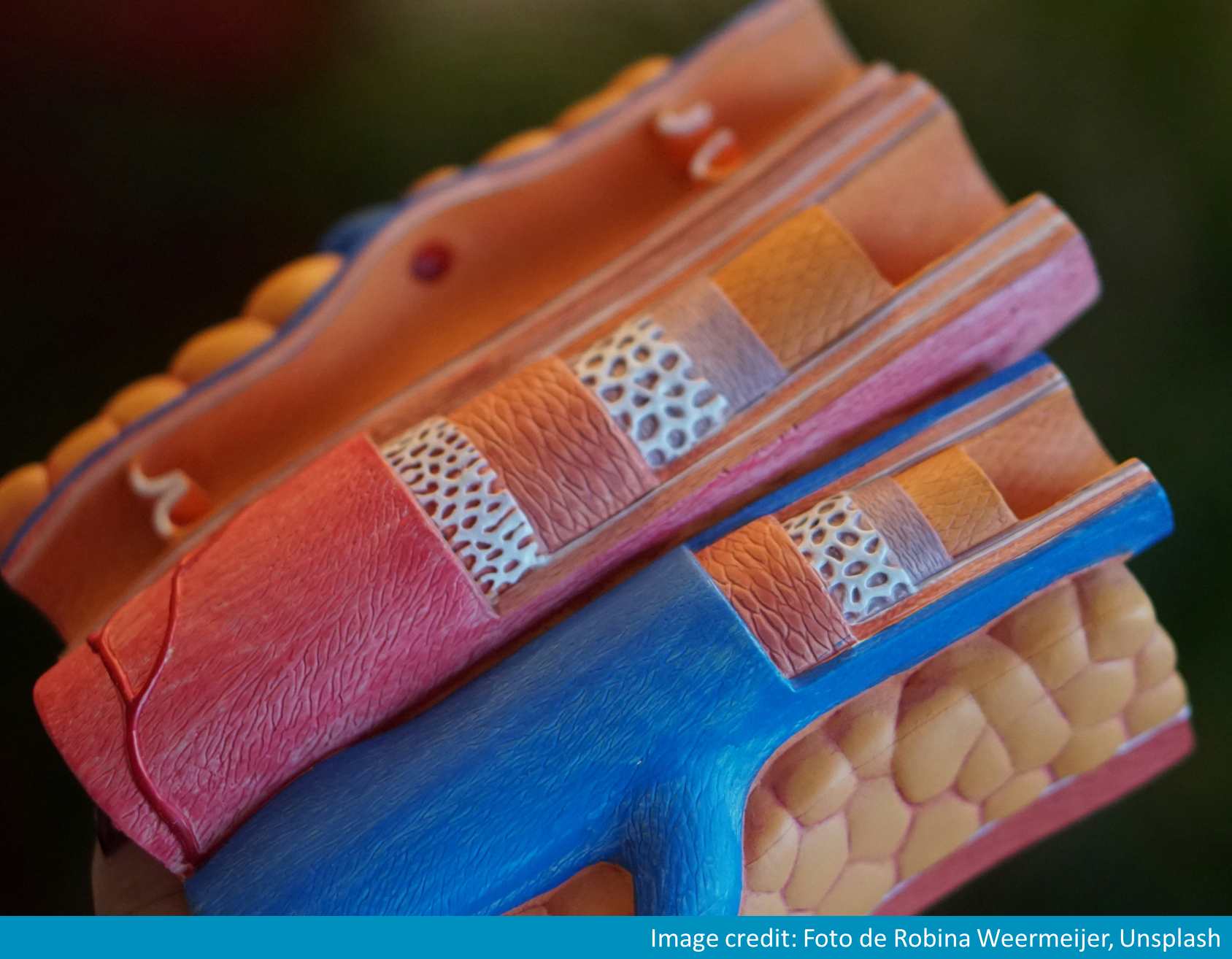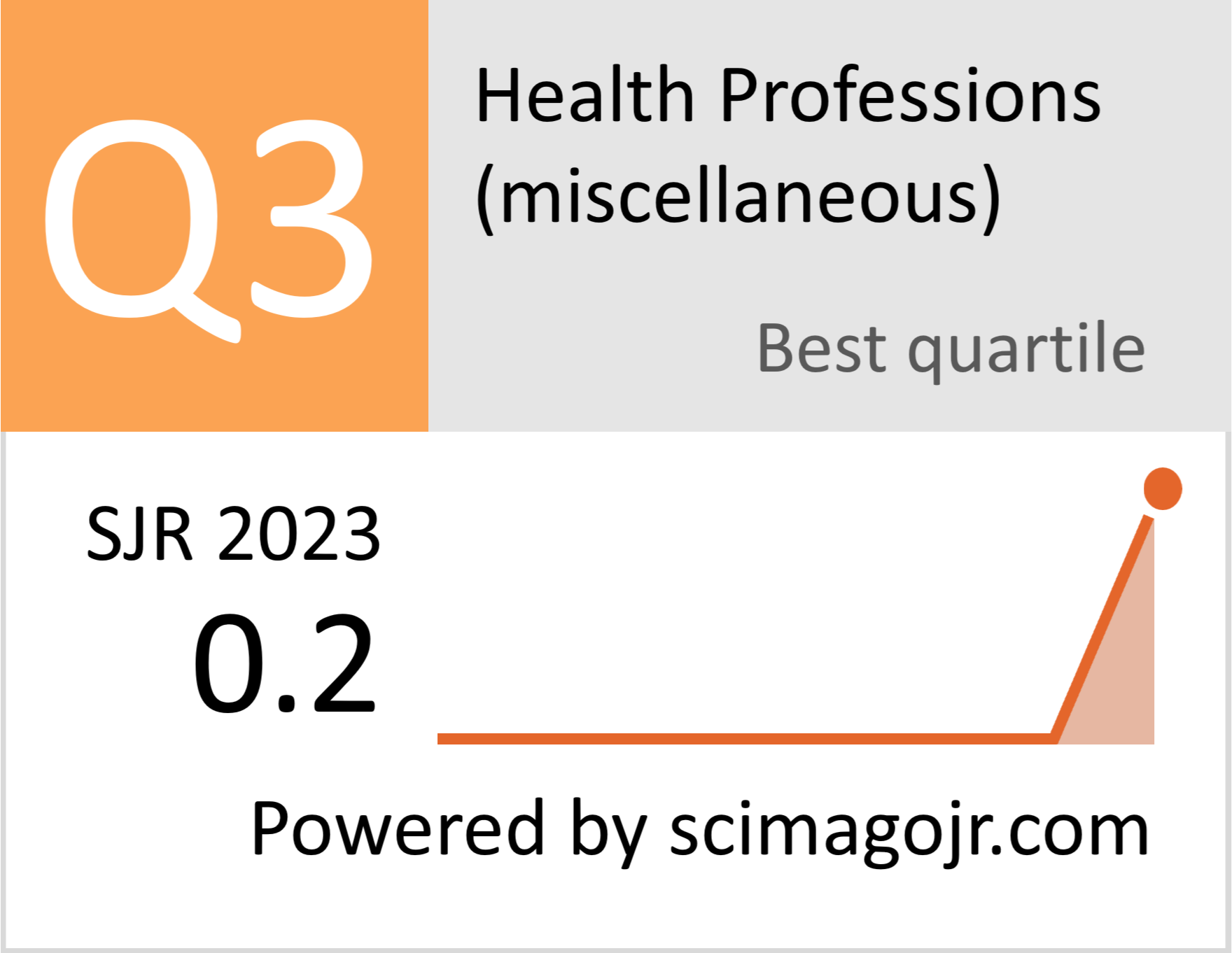Systemic Compensatory Mechanisms in Patients with Persistent Truncus Arteriosus
Mecanismos compensatorios a nivel sistémico en pacientes con tronco arterial persistente

This work is licensed under a Creative Commons Attribution-NonCommercial-NoDerivatives 4.0 International License.
Show authors biography
Introduction. Persistent truncus arteriosus is a rare congenital cardiac malformation that causes various complications in the cardiovascular system. It is characterized by the presence of a defective ventricular septum, a single truncal valve and a common truncus arteriosus between the pulmonary artery and aorta, leading to a mixture between arterial and venous blood, due to a predominantly left-to-right bidirectional cardiac shunt that compromises the supply of blood flow, nutrients, and systemic oxygenation. Clinical manifestations include desaturation with cyanosis, hypoxemia, tachycardia, tachypnea, alterations in cardiac contractility, abnormal distal pulses, weight loss, fatigue, and hepatomegaly.
Aim. The purpose of this research is to establish hypotheses about the various compensatory mechanisms that are activated at a systemic level to counteract the effects of this malformation.
Reflection. It is suggested that similar biomolecular responses occur in the cardiovascular, pulmonary, and renal systems, reducing nitric oxide production and causing vasoconstrictive responses. At the liver level, growth factors are generated and angiogenesis processes are initiated to increase blood perfusion. In the brain, enzymes are activated to increase blood flow and provide oxygen and essential nutrients.
Conclusion. Despite these compensatory mechanisms, they fail to completely counteract the clinical manifestations, leading to a series of health problems such as pulmonary hypertension, heart failure, hepatomegaly, organ hypoperfusion, and neurological deficits. These factors converge to generate a complex cardiac condition that triggers adaptive responses in the body that end up being a challenging and potentially serious medical condition.
Article visits 701 | PDF visits 179
- Chen Q, Gao H, Hua Z, Yang K, Yan J, Zhang H, et al. Outcomes of Surgical Repair for Persistent Truncus Arteriosus from Neonates to Adults: A Single Center's Experience. PLoS One [Internet]. 2016 Jan 11;11(1):1-11. doi: https://doi.org/10.1371/journal.pone.0146800 DOI: https://doi.org/10.1371/journal.pone.0146800
- Abel JS, Berg C, Geipel A, Gembruch U, Herberg U, Breuer J, et al. Prenatal diagnosis, associated findings and postnatal outcome of fetuses with truncus arteriosus communis (TAC). Arch Gynecol Obstet [Internet]. 2021;304(6):1455-66. doi: https://doi.org/10.1007/s00404-021-06067-x DOI: https://doi.org/10.1007/s00404-021-06067-x
- Naimo PS, Konstantinov IE. Surgery for Truncus Arteriosus: Contemporary Practice. Ann Thorac Sur [Internet]. 2021 May;111(5):1442-50. doi: https://doi.org/10.1016/j.athoracsur.2020.06.036 DOI: https://doi.org/10.1016/j.athoracsur.2020.06.036
- Alamri RM, Dohain AM, Arafat AA, Elmahrouk AF, Ghunaim AH, Elassal AA, et al. Surgical repair for persistent truncus arteriosus in neonates and older children. J Cardiothorac Surg [Internet]. 2020 May 11;15(1):1-7. doi: https://doi.org/10.1186/s13019-020-01114-1 DOI: https://doi.org/10.1186/s13019-020-01114-1
- Villegas Arenas OA, Pérez Agudelo JM, García Rojas D, Gutiérrez Durán OA, Hurtado Lizarralde JG, Jaramillo Ángel PF, et al. Caracterización de cardiopatías congénitas en Manizales 2010-2016. Rev Med. [Internet]. 2020 Sep 11;28(1):41-50. doi: https://doi.org/10.18359/rmed.4313 DOI: https://doi.org/10.18359/rmed.4313
- Girela E, Rejon R, Beltrán CM, Jiménez G. Muerte súbita en una paciente de 32 años con tronco arterioso persistente. Revi Espanola de Medicina Leg [Internet]. 2014;40(2):79-82. doi: https://doi.org/10.1016/j.reml.2013.06.009 DOI: https://doi.org/10.1016/j.reml.2013.06.009
- Dangrungroj E, Vijarnsorn C, Chanthong P, Chungsomprasong P, Kanjanauthai S, Durongpisitkul K, et al. Long-term outcomes of repaired and unrepaired truncus arteriosus: 20-year, single-center experience in Thailand. PeerJ [Internet]. 2020 May 12;8:1-18. doi: https://doi.org/10.7717/peerj.9148 DOI: https://doi.org/10.7717/peerj.9148
- Ng’eno TK, Koech MM, Yanoh R, Foster M, Velazquez E, Bloomfield GS. Truncus Arteriosus in a 43 year old Male: Case Report. East Afr Med J [Internet], 2016;91(12). Disponible en: https://www.ajol.info/index.php/eamj/article/view/131342
- Alizadeh LS, Koch V, Grünewald LD, Yel I, Mathies D, Rauschning D, et al. Case report of rare congenital cardiovascular anomalies associated with truncus arteriosus type 2. Heliyon [Internet]. 2022 Oct 11;8(10):1-4. doi: https://doi.org/10.1016/j.heliyon.2022.e11033 DOI: https://doi.org/10.1016/j.heliyon.2022.e11033
- Davidson H, Seco M, Asakai H, Liava'a M. A case report of truncus arteriosus with intact ventricular septum and crossed branch pulmonary arteries. Eur Heart J Case Rep [Internet]. 2023 Mar 29;7(4):1-4. doi: https://doi.org/10.1093/ehjcr/ytad134 DOI: https://doi.org/10.1093/ehjcr/ytad134
- Sadiq AM, Sadiq AM. A case of computed tomography diagnosis of truncus arteriosus type IV. Oxf Med Case Reports [Internet]. 2021 Feb 15;2021(2):80-82. doi: https://doi.org/10.1093/omcr/omaa144 DOI: https://doi.org/10.1093/omcr/omaa144
- Goldmuntz E. 22q11.2 deletion syndrome and congenital heart disease. Am J Med Genet C Semin Med Genet [Internet]. 2020;184(1):64-72. doi: https://doi.org/10.1002/ajmg.c.31774 DOI: https://doi.org/10.1002/ajmg.c.31774
- Ramos V, Roa I. Células de la Cresta Neural y su Relación con Cardiopatía Congénita: Revisión Sistemática de la Literatura. Int J Morphol [Internet]. 2016 Jun;34(2): 489-94. doi: https://doi.org/10.4067/S0717-95022016000200013 DOI: https://doi.org/10.4067/S0717-95022016000200013
- Chen T, Song S, Jiang H, Lian H, Hu S. Single Cell Sequencing Reveals Mechanisms of Persistent Truncus Arteriosus Formation after PDGFRα and PDGFRβ Double Knockout in Cardiac Neural Crest Cells. Genes (Basel) [Internet]. 2022 Sep 23;13(10):1-24. doi: https://doi.org/10.3390/genes13101708 DOI: https://doi.org/10.3390/genes13101708
- Rasänen M, Sultán I, Paech J, Amudhala K, Yu W, He L, et al. VEGF-B Promotes Endocardium-Derived Coronary Vessel Development and Cardiac Regeneration. Circulation [Internet]. 2021;143(1): 65-77. doi: https://doi.org/10.1161/CIRCULATIONAHA.120.050635 DOI: https://doi.org/10.1161/CIRCULATIONAHA.120.050635
- Poaty H, Pelluard F, André G, Maugey-Laulom B, Carles D. Truncus arteriosus communis: report of three cases and review of literature. Afr Health Sci [Internet]. 2018 Mar;18(1):147-56. doi: https://doi.org/10.4314/ahs.v18i1.19 DOI: https://doi.org/10.4314/ahs.v18i1.19
- Ly R, Mousseaux E, Iserin L, Ladouceur M. Multimodality imaging before persistent truncus arteriosus repair in a 36-year-old woman. Eur Heart J Case Rep [Internet]. 2020 Nov 9;4(6):1-2. doi: https://doi.org/10.1093/ehjcr/ytaa385 DOI: https://doi.org/10.1093/ehjcr/ytaa385
- Kumar P, Devi A, Ghosh G. An infant with truncus arteriosus with situs inversus with single atrium: A case report. J Cardiol Cases [Internet]. 2017;15(3):107-09. doi: https://doi.org/10.1016/j.jccase.2016.11.004 DOI: https://doi.org/10.1016/j.jccase.2016.11.004
- Liu Q, Qin G, Xiang T, Xiao W, Zhao Y, Pang Y. Laparoscopic radical resection for rectal cancer in a patient with uncorrected truncus arteriosus type IV: A case report. Rev Esp Anestesiol Reanim (Engl Ed) [Internet]. 2023;70(1):56-9. doi: https://doi.org/10.1016/j.redare.2021.05.022 DOI: https://doi.org/10.1016/j.redare.2021.05.022
- Chellappan S, Manohar K, Sathe Y, Pandey R, Joshi R, Deshpande A. Acyanotic Truncus Arteriosus: Not a Misnomer But a True Rarity. World J Pediatr Congenit Heart Surg [Internet]. 2022;13(1):104-06. doi: https://doi.org/10.1177/21501351211000367 DOI: https://doi.org/10.1177/21501351211000367
- Stephenson JJ, Hook JE, Beall J, Delany DR, Buckley JR, Chowdhury SM, et al. Association Between Birth Weight Z-Scores and Early Outcomes Following Truncus Arteriosus Repair. Pediatr Cardiol [Internet]. 2023;44(4):741-47. doi: https://doi.org/10.1007/s00246-023-03107-y DOI: https://doi.org/10.1007/s00246-023-03137-6
- Naimo PS, Bell D, Fricke TA, d'Udekem Y, Brizard CP, Alphonso N, et al. Truncus arteriosus repair: A 40-year multicenter perspective. J Thorac Cardiovasc Surg [Internet]. 2021;161(1):230-40. doi: https://doi.org/10.1016/j.jtcvs.2020.04.149 DOI: https://doi.org/10.1016/j.jtcvs.2020.04.149
- Shiina Y, Murakami T, Matsumoto N, Okamura D, Takahashi Y, Nishihata Y, et al. Body composition, appetite-related hormones, adipocytokines, and heart failure in adult patients with congenital heart disease: A preliminary study. Congenit Heart Dis [Internet]. 2018;13(1):79-84. doi: https://doi.org/10.1111/chd.12555 DOI: https://doi.org/10.1111/chd.12555
- Tsintoni A, Dimitriou G, Karatza AA. Nutrition of neonates with congenital heart disease: existing evidence, conflicts and concerns. J Matern Fetal Neonatal Med [Internet]. 2020;33(14):2487-92. doi: https://doi.org/10.1080/14767058.2018.1548602 DOI: https://doi.org/10.1080/14767058.2018.1548602
- Kawasaki Y, Murakami Y, Ehara E, Oshitani T, Nakamura K, Yoshida Y, et al. A rare case of truncus arteriosus Van Praagh type A3: Prenatal diagnosis and postnatal management. J Cardiol Cases [Internet]. 2019 May 22;20(1):30-4. doi: https://doi.org/10.1016/j.jccase.2019.03.009 DOI: https://doi.org/10.1016/j.jccase.2019.03.009
- Bhansali S, Phoon C. Truncus Arteriosus. StatPearls [Internet]. 2022 Aug 8. Disponible en: https://www.ncbi.nlm.nih.gov/books/NBK534774/
- Vargas Vargas RA, Varela Millán JM, Fajardo Bonilla E. Renin-angiotensin system: Basic and clinical aspects-A general perspective. Endocrinol Diabetes Nutr (Engl Ed) [Internet]. 2022;69(1):52-62. doi: https://doi.org/10.1016/j.endien.2022.01.005 DOI: https://doi.org/10.1016/j.endien.2022.01.005
- Valle, C., Hadley, M. Truncus Arteriosus. En DeFaria Yeh, D., Bhatt, A, editors. Adult Congenital Heart Disease in Clinical Practice in Clinical Practice [Internet]. Boston: Springer, Cham; 2018. p. 319-30. Disponible en: https://doi.org/10.1007/978-3-319-67420-9_24 DOI: https://doi.org/10.1007/978-3-319-67420-9_24
- Singh Y, Lakshminrusimha S. Pathophysiology and Management of Persistent Pulmonary Hypertension of the Newborn. Clin Perinatol [Internet]. 2021;48(3):595-618. doi: https://doi.org/10.1016/j.clp.2021.05.009 DOI: https://doi.org/10.1016/j.clp.2021.05.009
- Calderón-Colmenero J, Massó F, González-Pacheco H, Sandoval J, Guerrero C, Cervantes-Salazar J, et al. Pulmonary arterial hypertension in children with congenital heart disease: a deeper look into the role of endothelial progenitor cells and circulating endothelial cells to assess disease severity. Front Pediatr [Internet]. 2023 Jul 6;11:1-0. doi: https://doi.org/10.3389/fped.2023.1200395 DOI: https://doi.org/10.3389/fped.2023.1200395
- Alex A, Ayyappan A, Valakkada J, Kramadhari H, Sasikumar D, Menon S. Major Aortopulmonary Collateral Arteries. Radiol Cardiothorac Imaging [Internet]. 2022 Feb 3;4(1):1-12. doi: https://doi.org/10.1148/ryct.210157 DOI: https://doi.org/10.1148/ryct.210157
- Ziyaeifard M, Azarfarin R, Ferasatkish R. New aspects of anesthetic management in congenital heart disease “common arterial trunk”. J Res Med Sci [Internet]. 2014;19(4):368-74. Disponible en: http://jrms.mui.ac.ir/index.php/jrms/article/view/9962
- Zolfi-Gol A, Radvar M, Sedokani A. Hemitruncus Arteriosus in a 10-Day-Old Neonate with Patent Ductus Arteriosus and Thrombocytopenia. Vasc Health Risk Manag [Internet]. 2020 Abr 1;16:99-101. doi: https://doi.org/10.2147/VHRM.S245033 DOI: https://doi.org/10.2147/VHRM.S245033
- Furuya WI, Dhingra RR, Gundlach AL, Hossain MA, Dutschmann M. Relaxin-3 receptor (RXFP3) activation in the nucleus of the solitary tract modulates respiratory rate and the arterial chemoreceptor reflex in rat. Respir Physiol Neurobiol [Internet]. 2020;271:103310. doi: https://doi.org/10.1016/j.resp.2019.103310 DOI: https://doi.org/10.1016/j.resp.2019.103310
- Moya EA, Go A, Kim CB, Fu Z, Simonson TS, Powell FL. Neuronal HIF-1α in the nucleus tractus solitarius contributes to ventilatory acclimatization to hypoxia. J Physiol [Internet]. 2020 May;598(10):2021-34. doi: https://doi.org/10.1113/JP279331 DOI: https://doi.org/10.1113/JP279331
- Taylor CT, Scholz CC. The effect of HIF on metabolism and immunity. Nat Rev Nephrol [Internet]. 2022;18(9):573-87. doi: https://doi.org/10.1038/s41581-022-00587-8 DOI: https://doi.org/10.1038/s41581-022-00587-8
- Xie Y, Shi X, Sheng K, Han G, Li W, Zhao Q, et al. PI3K/Akt signaling transduction pathway, erythropoiesis and glycolysis in hypoxia (Review). Mol Med Rep [Internet]. 2019;19(2):783-91. doi: https://doi.org/10.3892/mmr.2018.9713 DOI: https://doi.org/10.3892/mmr.2018.9713
- Mirabito Colafella KM, Bovée DM, Danser AHJ. The renin-angiotensin-aldosterone system and its therapeutic targets. Exp Eye Res [Internet]. 2019;186:107680. doi: https://doi.org/10.1016/j.exer.2019.05.020 DOI: https://doi.org/10.1016/j.exer.2019.05.020
- Sánchez A, Lucas J, Carrasco JI. Afectación renal en las cardiopatías congénitas. Acta Pediatr Esp [Internet]. 2014;72(1):e1-e8. Disponible en: https://tinyurl.com/ylsvltdz
- El Sayegh S, Ephrem G, Wish JB, Moe S, Lim K. Kidney disease and congenital heart disease: Partnership for life. Front Physiol [Internet]. 2022 Aug 19;13:1-8. doi: https://doi.org/10.3389/fphys.2022.970389 DOI: https://doi.org/10.3389/fphys.2022.970389
- Caliskan Y, Yazici H, Yelken BM, Gorgulu N, Kiliçaslan I, Demirturk M, et al. A Case of Focal Segmental Glomerulosclerosis Accompanied By Truncus Arteriosus: Effectiveness of Angiotensin Receptor Antagonist and Cyclosporine A. Turkish J Nephrol [Internet]. 2009;18(3):123-26. Disponible en: https://tinyurl.com/yrapek3u
- Hongsawong N, Khamdee P, Silvilairat S, Chartapisak W. Prevalence and associated factors of renal dysfunction and proteinuria in cyanotic congenital heart disease. Pediatr Nephrol. 2018;33(3):493-501. doi: https://doi.org/10.1007/s00467-017-3804-3 DOI: https://doi.org/10.1007/s00467-017-3804-3
- Wang JS, Zhang QY, Cheng JL, Chen LY, Yao NL, Sun GZ, et al. Angiogenesis and Hepatic Fibrosis: Western and Chinese Medicine Therapies on the Road. Chin J Integr Med [Internet]. 2018;24(9):713-20. doi: https://doi.org/10.1007/s11655-018-3007-1 DOI: https://doi.org/10.1007/s11655-018-3007-1
- Baialardo AG. Síndrome cardio-hepático ¿Qué debemos saber como cardiólogos?. Insuf card [Internet]. 2015;10(2):66-77. Disponible en: http://www.insuficienciacardiaca.org/html/v10n2/body/v10n2a03.html
- Haselden WD, Kedarasetti RT, Drew PJ. Spatial and temporal patterns of nitric oxide diffusion and degradation drive emergent cerebrovascular dynamics. PLoS Comput Biol [Internet]. 2020 Jul 27;16(7):1-42. doi: https://doi.org/10.1371/journal.pcbi.1008069 DOI: https://doi.org/10.1371/journal.pcbi.1008069
- Mebius MJ, Bilardo CM, Kneyber MCJ, Modestini M, Ebels T, Berger RMF, et al. Onset of brain injury in infants with prenatally diagnosed congenital heart disease. PLoS One [Internet]. 2020 Mar 25;15(3):1-14. doi: https://doi.org/10.1371/journal.pone.0230414 DOI: https://doi.org/10.1371/journal.pone.0230414
- Bonthrone AF, Dimitrova R, Chew A, Kelly CJ, Cordero-Grande L, Carney O, et al. Individualized brain development and cognitive outcome in infants with congenital heart disease. Brain Commun [Internet]. 2021 Mar 23;3(2):1-14. doi: https://doi.org/10.1093/braincomms/fcab046 DOI: https://doi.org/10.1093/braincomms/fcab046
- Vassar R, Peyvandi S, Gano D, Cox S, Zetino Y, Miller S, et al. Critical congenital heart disease beyond HLHS and TGA: neonatal brain injury and early neurodevelopment. Pediatr Res [Internet]. 2023;94(2):691-98 doi: https://doi.org/10.1038/s41390-023-02490-9 DOI: https://doi.org/10.1038/s41390-023-02490-9
- Brossard-Racine M, du Plessis A, Vezina G, Robertson R, Donofrio M, Tworetzky W, et al. Brain Injury in Neonates with Complex Congenital Heart Disease: What Is the Predictive Value of MRI in the Fetal Period? AJNR Am J Neuroradiol [Internet]. 2016 Jul 1;37(7):1338-46. doi: https://doi.org/10.3174/ajnr.A4716 DOI: https://doi.org/10.3174/ajnr.A4716
- Gano D, McQuillen P. How does the convergence of prematurity and congenital heart disease impact the developing brain? Semin Perinatol [Internet]. 2021 Nov;45(7):151472. doi: https://doi.org/10.1016/j.semperi.2021.151472 DOI: https://doi.org/10.1016/j.semperi.2021.151472
- Hermans T, Thewissen L, Gewillig M, Cools B, Jansen K, Pillay K, et al. Functional brain maturation and sleep organisation in neonates with congenital heart disease. Eur J Paediatr Neurol [Internet]. 2022;36:115-122. doi: https://doi.org/10.1016/j.ejpn.2021.12.008 DOI: https://doi.org/10.1016/j.ejpn.2021.12.008
- Sethi N, Carpenter JL, Donofrio MT. Impact of perinatal management on neurodevelopmental outcomes in congenital heart disease. Semin Perinatol [Internet]. 2022;46(4):151582. doi: https://doi.org/10.1016/j.semperi.2022.151582 DOI: https://doi.org/10.1016/j.semperi.2022.151582



